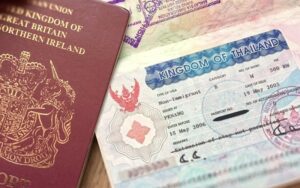Child legitimation is a crucial legal process in Thailand that establishes a legal relationship between a child and their parents, particularly the father, when the child is born outside of marriage. Under Thai law, legitimation grants the child full legal rights, including inheritance, parental care, and family recognition. Understanding child legitimation in Thailand is essential for parents, guardians, and legal practitioners, as it directly affects a child’s legal status, welfare, and future rights.
Legal Framework for Child Legitimation in Thailand
Child legitimation in Thailand is governed by the Thai Civil and Commercial Code. According to the law, a child born to unmarried parents is legally considered the legitimate child of the mother only. The father has no parental rights or duties unless the child is legitimized through marriage, court order, or formal registration.
Legitimation establishes legal parentage, granting the father parental power and the child legal recognition as a legitimate child under Thai law.
Importance of Child Legitimation
The importance of child legitimation in Thailand lies in its ability to protect the child’s rights and ensure equal treatment under the law. Legitimated children enjoy the same legal rights as children born to married parents, including inheritance rights, parental care, and family status.
Without legitimation, children may face legal disadvantages, particularly in matters of inheritance, custody, and family recognition.
Methods of Child Legitimation in Thailand
Thailand provides several methods for child legitimation, allowing flexibility depending on the parents’ circumstances.
Legitimation by Subsequent Marriage
The most straightforward method of legitimation occurs when the parents marry after the child’s birth. Upon marriage registration, the child is automatically legitimized under Thai law.
This method:
-
Grants immediate legal recognition
-
Establishes parental power for both parents
-
Requires no court proceedings
Legitimation by marriage is common when parents later decide to formalize their relationship.
Legitimation by Court Order
When marriage is not possible or practical, the father may apply to the court for legitimation. The court examines evidence of paternity and considers the child’s best interests.
Court-ordered legitimation:
-
Establishes legal paternity
-
Grants parental rights and responsibilities
-
Requires judicial approval
The mother’s consent is generally required, unless the court determines otherwise in the child’s best interests.
Legitimation by Registration
In some cases, legitimation can be achieved through registration with the district office, with the consent of both parents. This administrative process is less complex than court proceedings but still requires compliance with legal requirements.
This method provides a faster alternative when both parents agree.
Rights Granted Through Legitimation
Child legitimation in Thailand provides significant legal benefits for both the child and the father.
For the child, legitimation grants:
-
Inheritance rights from the father
-
Legal recognition as a legitimate child
-
Access to parental care and support
For the father, legitimation grants:
-
Parental power and decision-making authority
-
Legal responsibility for child support
-
Rights to custody or visitation
These rights strengthen family bonds and provide legal clarity.
Child Custody and Parental Power
Once a child is legitimized, parental power may be exercised jointly or as determined by agreement or court order. Legitimation allows fathers to actively participate in decisions regarding education, healthcare, and upbringing.
Custody arrangements may be established through agreement or court proceedings, always prioritizing the child’s best interests.
Child Support Obligations
Legitimation also establishes the father’s legal obligation to provide child support. This ensures that the child receives financial support from both parents.
Child support arrangements can be agreed upon or ordered by the court, providing financial stability and security for the child.
Inheritance and Property Rights
One of the most important benefits of child legitimation in Thailand is inheritance rights. A legitimated child has the legal right to inherit from both parents under Thai inheritance laws.
Without legitimation, a child may be excluded from inheriting from the father, leading to potential financial and emotional hardship.
Emotional and Social Benefits
Beyond legal rights, legitimation provides emotional and social benefits. Legal recognition strengthens the child’s sense of identity, belonging, and family connection.
For parents, legitimation promotes responsibility, involvement, and stability, benefiting the child’s overall development.
Legitimation in International and Cross-Border Cases
Thailand is home to many international families, making child legitimation important in cross-border contexts. Legitimation helps ensure recognition of parental rights and child status under Thai law, which may be necessary for travel, education, or immigration purposes.
Proper legitimation reduces legal uncertainty in international family matters.
Importance of Legal Guidance in Legitimation Cases
Child legitimation involves legal procedures and documentation that must be handled correctly. Legal guidance ensures compliance with Thai law and protects the rights of all parties involved.
Lawyers can assist with:
-
Determining the appropriate legitimation method
-
Preparing documents and evidence
-
Representing parties in court proceedings
Professional assistance helps ensure that legitimation is completed efficiently and lawfully.
Conclusion
Child legitimation in Thailand is a vital legal process that ensures children born outside of marriage receive full legal recognition and protection. By establishing legal parentage, legitimation grants children essential rights to care, support, inheritance, and family identity. Whether achieved through marriage, registration, or court order, legitimation promotes the child’s best interests and strengthens family relationships. Understanding the legal framework and seeking proper guidance allows parents to navigate the legitimation process effectively and secure a stable and protected future for their child under Thai law.






















